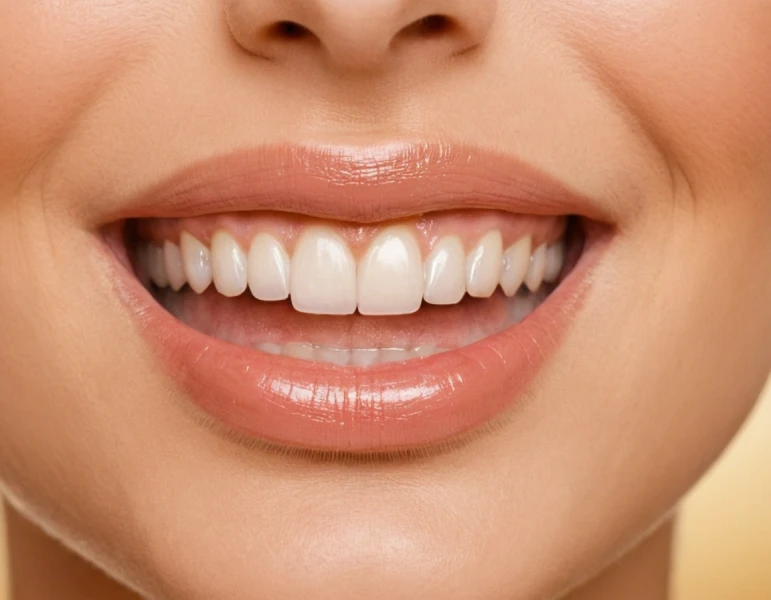Educa UNIVERSITY|HEALTH
Tips to improve your oral health: practical and effective advice
Related Masters
Tips to improve your oral health: practical and effective advice
Hello! I'm Pablo Garcia, and today I want to share with you some tips to improve your oral health. Throughout my life, I have learned the importance of maintaining good oral hygiene and how small changes in our daily habits can make a big difference. So, without further ado, here are my recommendations:
1. Brush your teeth at least twice a day
Seems obvious, right? But you'd be surprised how many people don't do it correctly. It's essential to brush your teeth at least twice a day, preferably after meals. Use a fluoride toothpaste and a soft-bristled toothbrush. Remember that brushing should last at least two minutes, making sure to clean all surfaces of your teeth.
2. Don't forget to floss
Brushing alone is not enough to remove plaque and food debris that accumulates between the teeth. That's why flossing at least once a day is essential. This habit helps prevent tooth decay and gum disease.

3. Clean your tongue
The tongue can harbor bacteria that cause bad breath and other oral problems. Therefore, it is advisable to clean it daily with a tongue cleaner or your own toothbrush. This simple gesture will improve your oral health and give you fresher breath.
4. Maintain a balanced diet
A healthy diet is key to good oral health. Limit your intake of sugars and processed foods, as they can contribute to tooth decay. Include fresh fruits and vegetables, low-fat dairy and lean proteins in your diet. These foods provide the nutrients needed to keep your teeth and gums healthy.
5. Avoid smoking and excessive alcohol
Smoking and excessive alcohol consumption can have negative effects on your oral health. Tobacco stains teeth, causes bad breath and increases the risk of gum disease and oral cancer. Alcohol, meanwhile, can dry out your mouth and increase acidity, encouraging tooth decay.
6. Visit the dentist regularly
Do not wait until you have pain or discomfort to visit the dentist. Regular visits, at least once a year, allow early detection and treatment of any oral problems. In addition, a professional cleaning removes plaque and tartar that you cannot remove with daily brushing.
7. Hydrate properly
Drinking enough water throughout the day helps keep your mouth hydrated and promotes saliva production, which is essential for neutralizing acids and eliminating bacteria. In addition, water helps wash away food debris and keep breath fresh.
8. Use mouthwash
A proper mouthwash can complement your oral hygiene routine. It helps to kill bacteria and keep your breath fresh. However, it should not replace brushing and flossing. Consult your dentist about which rinse is right for you.
9. Avoid biting on hard objects
Biting on objects such as pens, ice or fingernails can damage your tooth enamel and even cause fractures. If you have this habit, it is important to avoid it to keep your teeth in good condition.
10. Manage stress
Stress can lead to habits such as bruxism (teeth grinding), which wears down enamel and can cause jaw pain. Practice relaxation techniques and, if necessary, consult with a professional to manage stress effectively.
11. Know the importance of fluoride
Fluoride is a mineral that strengthens tooth enamel and prevents tooth decay. Be sure to use a toothpaste that contains fluoride and, if necessary, your dentist can recommend additional fluoride treatments.
12. Be aware of changes in your mouth
Pay attention to any changes in your mouth, such as sores that don't heal, bleeding gums, white or red spots, or any other abnormalities. If you notice anything unusual, consult your dentist as soon as possible.
13. Avoid excessive consumption of sugary and acidic drinks
Sweetened and acidic drinks, such as soft drinks and citrus juices, can erode tooth enamel and increase the risk of tooth decay. Limit their consumption and, if you do ingest them, use a straw to minimize contact with your teeth and rinse your mouth with water afterwards.
14. Chew sugarless gum
Chewing sugarless gum after meals can stimulate saliva production, which helps neutralize acids and clean up food debris. However, it should not replace brushing and flossing.
15. Protect your teeth during sports activities
If you practice contact sports, use a mouth guard to avoid injury to your teeth and jaw. A customized guard, made by your dentist, will offer better protection and comfort.
16. Avoid sudden temperature changes in food
Eating food or drinks that are too hot and then too cold can cause tooth sensitivity and damage enamel. Try to avoid these sudden temperature changes to protect your teeth.
17. Do not use your teeth as tools
Avoid using your teeth to open containers, cut threads or any other activity other than chewing food. These types of actions can lead to tooth fractures or tooth wear.
18. Consider using an oral irrigator
An oral irrigator can be an excellent addition to your oral hygiene routine, especially if you have braces or implants. It helps remove food debris and plaque in hard-to-reach areas.
19. Educate young children about the importance of oral health
If you have children, teach them the importance of good oral hygiene from a young age. Establish brushing routines and dental visits to instill healthy habits that they will maintain throughout their lives.
20. Be consistent and patient
Oral health is not achieved overnight. It is important to be consistent with your hygiene habits and be patient. The results are worth it: a healthy smile and a better quality of life.
Remember, good oral health is critical to your overall well-being. By following these tips and maintaining a proper hygiene routine, you'll be on the right track to preventing dental problems and enjoying a healthy, bright smile.
Faculties
Trainings
The faculties embrace diverse academic disciplines and fields of study, opening doors to new perspectives and exploring different spheres of wisdom in a constantly evolving world.














